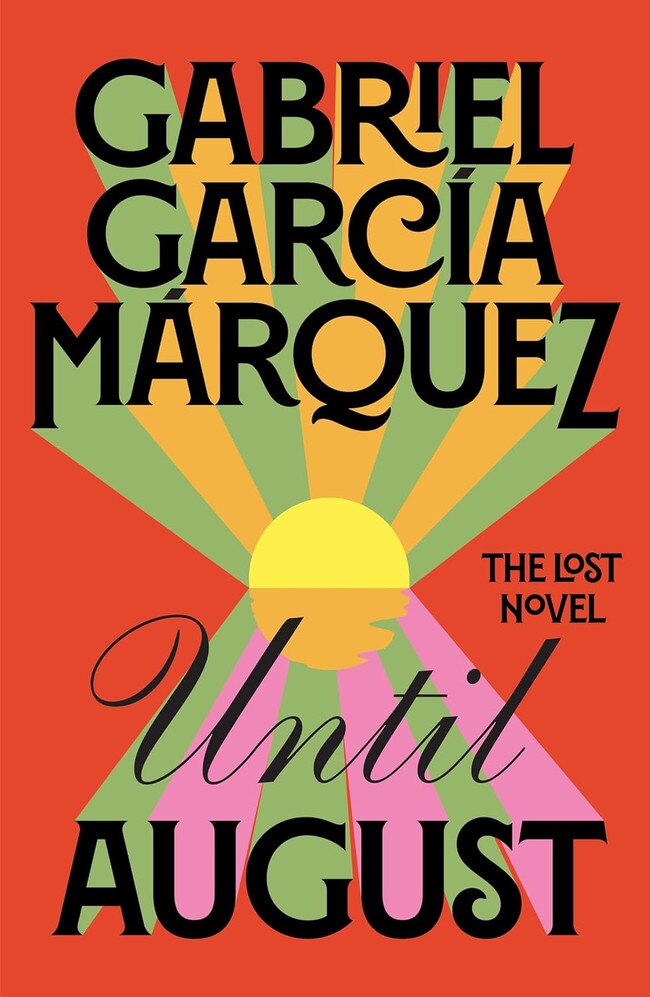Should Gabriel Garcia Marquez’s last book have been published?
The two sons of Gabriel Garcia Marquez have decided that the world should read his last book, written while the Nobel laureate grappled with dementia.

There is good reason for fans of Gabriel Garcia Marquez to be wary of Until August. The beloved Columbian Nobel prize-winner – a writer who did more, perhaps, than any other to bring the literature of Latin America to global prominence in the Twentieth century, ultimately becoming the most translated Spanish-language author in the world – had wanted his final, incomplete novel to remain unpublished. It represented, for him, one last, doomed attempt to wrestle with his art as dementia closed in.

But in the decade since Marquez’s death in 2014, his children (and literary executors) had a change of heart. ‘Judging the book to be much better than we remembered’ they write in a brief preface to this edition, ‘another possibility occurred to us: that the fading faculties that kept him from finishing the book kept him from realising how good it was.’ Their ‘betrayal’, then, has consisted in putting ‘readers pleasure ahead of all other considerations.’
And how lucky we are that they did so, for Until August, flawed as it is, is a book that should be viewed in relation to Marquez’s oeuvre in the same way that Hemingway’s The Old Man and the Sea is to his: a slender, late tale in which style and narrative both are stripped back to an originary plainness. If Marquez’s book is rougher around the edges than Hemingway’s immaculate story, Until August’s virtues emerge from the author’s struggle against inevitable loss.
Our experience of reading Until August is that of watching a mottled onion peeled back, layer by layer, to a sweet, undamaged core. The tropical exuberance of his mature imagination is here reduced to chastened realism, the noisome bravura of his sentences quietened to a murmur. Its ambitious initial plan of three interlinked novellas has been collapsed into one.
The action of the work is at once compressed and telescopic. It unfolds over four years but is mainly limited to describing the few days each August when a woman named Ana Magdalena Bach takes a ferry to the unnamed Caribbean island where her mother is buried and performs a private memorial. Ana cleans the grave, places a fresh bunch of gladioli upon it, then has a brief, one-sided conversation had with the departed woman in which events of the past year are relayed.
The first of these recounted years is different, however. Ana is a devoted wife and mother in her late forties, still possessed of an ‘autumnal’ beauty, who has remained doggedly faithful to her husband, the head of a regional musical conservatorium on the mainland, despite years of advances from other men.

That night on the island, Ana meets a man in the bar of the cheap hotel where she is staying and is inexplicably moved to invite him into her bed. When she wakes the following morning the man has vanished, but not before leaving a twenty dollar note in the pages of a book belonging to her.
Such unexpected passion awakens in Ana both guilt and a kind of exultation. Yet the man’s obtuse misunderstanding of her and her motivations is a slap. She returns to her husband with renewed love but also disquiet: if she is capable of betrayal, surely so is he.
This first affair broaches something inside Ana. She maintains self-control at home but permits herself to embrace opportunities for adultery during subsequent trips to the island. Marquez may leave threads dangling in narrative terms but his sense of the inner drift of a woman unmoored by eros has the inevitability of something fated. Hers is an act of self-destruction at once determinedly sought and increasingly despaired of.
Because that first, unplanned, paradisal encounter cannot be replicated. Each year sees lovers more sinister, or more insipid, or else dangerously close to her home life (as when she runs into an old family friend on the island – a man who has courted her, fruitlessly, for years).
Ana’s psychological state increasingly fractures. Her own guilt is directed towards her loving husband as mistrust, and the lubricious fantasies she entertains are warped into anger against her youngest child, a daughter who wishes to join a nunnery and so remove herself from the sexual economy entirely.
Finally, Ana turns against her own dead mother, suspecting her of somehow influencing, from beyond, her actions. The final paragraphs see the much-visited grave dug up and Ana’s mother’s bones disinterred: a skeleton she transfers to a bag and carries, in the novella’s only moment of magical excess, home to her husband.
This bare outline of an already minimalist narrative fails to capture the smooth and vivid quality of Until August: the way it shows how desire can turn the bland, blameless narrowness of wifedom into something more stirring and humanly urgent, or the delicacy with which it sketches such a woman and such a situation into being.
That there are levels of meaning and intention lost because of the author’s increasing mental frailty is evident, but there is beauty enough here to justify the betrayal of Marquez’s wishes. If readers’ delight carries any weight at all, the great man will forgive us.
Geordie Williamson has been chief literary critic of The Australian since 2008.







To join the conversation, please log in. Don't have an account? Register
Join the conversation, you are commenting as Logout